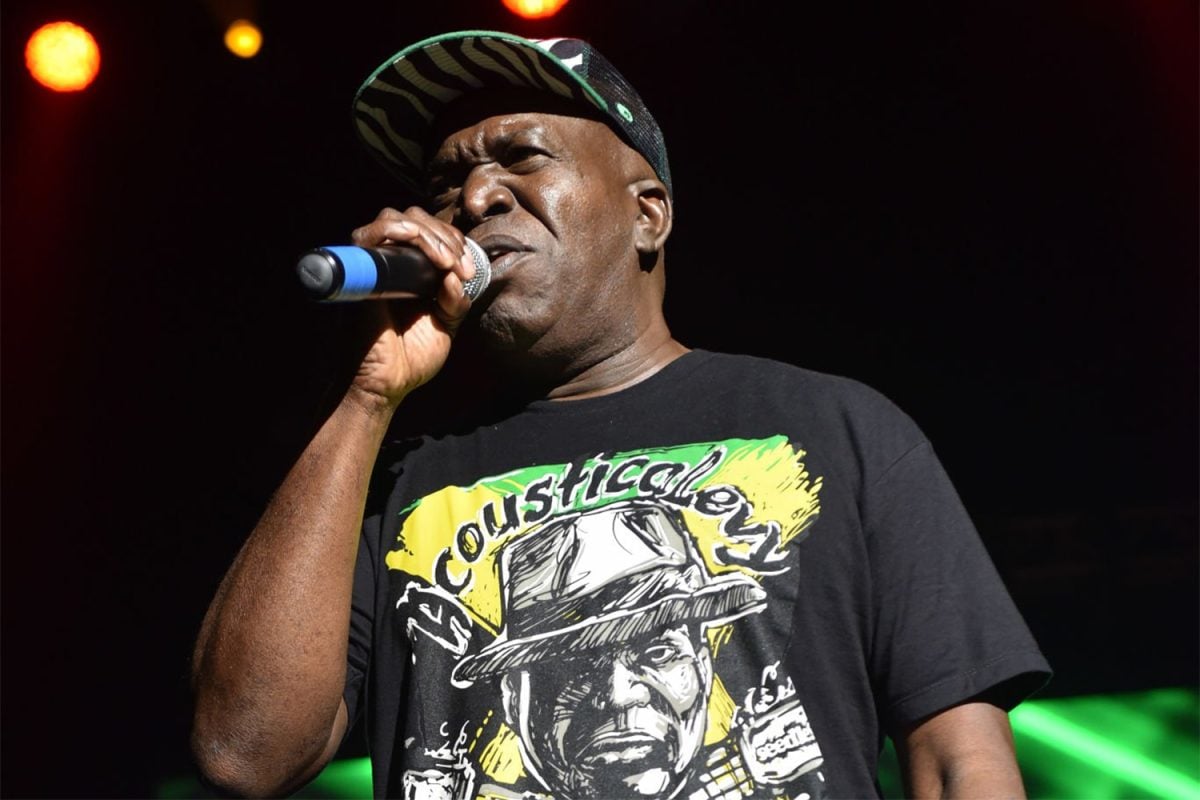Throwback Thursday: Barrington Levy’s ‘Black Roses’

In 1983, Barrington Levy’s ‘Black Roses’ spread its roots all throughout Reggae music and the world, and subsequently became one of Levy’s most iconic tunes. Today, it resurfaces as the focus of our Throwback Thursday series.
Produced by Hyman Wright and Percy Chin, ‘Black Roses’ was an interesting exercise in subverting expectations in a genre that thrived on being a little on the nose. Lonely? Say exactly that. Admire someone? Say that too. For Barrington Levy, however, a love song that abandoned almost all the traditional references to love – most glaringly in this case a ‘Red Rose’ – for something dark, worked just as well.
It is uncertain whether Levy intended it, but his insistence on using Black Roses as a substitute for something special, parts ways with literary and mainstream traditions. In those spaces, Black is symbolically tied to death, mourning and tragedy. For Levy, black signifies the object of his affection.
In William Shakespeare’s ‘Othello’, for example, the color black is used to symbolize evil, jealousy and betrayal. In another famous Shakespearean work, ‘Macbeth’, black symbolizes death and darkness. Whether or not he realized it, the view imposed by Levy’s rose-colored glasses earned him two specific advantages on that front: a uniquely creative lane in which to operate, and a fiercely original perspective that lends itself to the birth of classics, just as the track turned out to be.
The first verse of ‘Black Roses’ goes:
“To keep and care it, you’ve got to water it
To keep and care it, you’ve got to water it
I’ve been travelin’ all over this world, yeah
I’ve never seen a Black rose in no other garden
So you see, my garden is so special, oh yeah
Black, black roses in my garden, yeah”
Rooted in that commentary may be some hint as to Levy’s creative direction on the track, which was jointly written by himself and Hyman Wright. He highlights that in all his travels around the world, he has never encountered a black rose, except for only in his garden. Taken metaphorically, with the obvious connotation of ‘Black’ referring to race, and ‘Roses’ referring to women, Levy’s message may simply be a nod to some one-of-a-kind black woman he may have encountered back home. A cursory glance at Levy’s history proves such expressions are not rare for him.
In 1977, while still a part of the band, the Mighty Multitude, which Levy had formed with his cousin, Everton Dacres, the duo released ‘My Black Girl’. Bearing quite a few parallels to the later released ‘Black Roses’ – most notably the explicit use of ‘Black’ to specifically describe his subject, Levy and his cousin made it clear that they needed a ‘Black queen’, and expressed confidence that God would grant them that. Similarly, ‘Black Roses’, when taken on the metaphorical front, could be indicating the same, albeit with a few variations.
Unfortunately, the literal implications of ‘Black Roses’, as used in the aforementioned opening verse to the classic, pokes quite a few holes in the literary theory proffered above.
Levy shares that “I’ve been travelin’ all over this world, yeah/I’ve never seen a Black rose in no other garden”. If his garden is to be synonymous with his home, then he most certainly would have encountered ‘Black Roses’ (unique Black Women) before. After all, he was born in Clarendon, Jamaica. However, literally examined, Levy’s ‘garden’ is far less likely to be home. Unless, of course, his home is in Halfeti, Turkey – the only place in the world ‘Black’ roses are said to be naturally occurring.
Location aside, we suspect that Levy’s intentions have less to do with where the ‘Black Roses’, and more so to do with the fact that they are especially rare – which is the sentiment he leans on throughout the song. He stresses the importance of caring for this rare thing he’s found, and the lengths he must go to for its preservation.
He sings in the song’s second verse:
“To keep and care it, you’ve got to water it
Got to keep, Got to keep the earth so cool, yeah
Cause something special is in my garden
Black, black roses in my garden
Hey, aye, aye”
For the rest of the song, he drives home those sentiments. And while the practice seems redundant, the song’s beauty is to be found in that very fact. A love song often appears intricately written. At times, that sophistication works, at others, it detracts from the message. Such an error is avoided in ‘Black Roses’, which finds added depth as a result of Levy’s vocals. Love is simple – it ought to be, and that’s what this song is.
Among the many interesting decisions Levy makes for this song, his sampling of Dennis Brown’s ‘Revolution’, which was also released in 1983, stands out. Using such a gritty song rooted in activism as the foundation for a love song is a bold move. It ultimately paid off for Levy.
Such decisions, coupled with his inimitable vocals, shed some light on why the ‘Here I Come’ singer was recently recognized by Rolling Stones as one of the 200 greatest singers of all time.
Levy’s voice defined a musical generation, and with his willingness to continue making songs true to his nature as a Dancehall superstar, his streak as a hit-maker may not soon end. ‘Black Roses’ remains testament of that.
